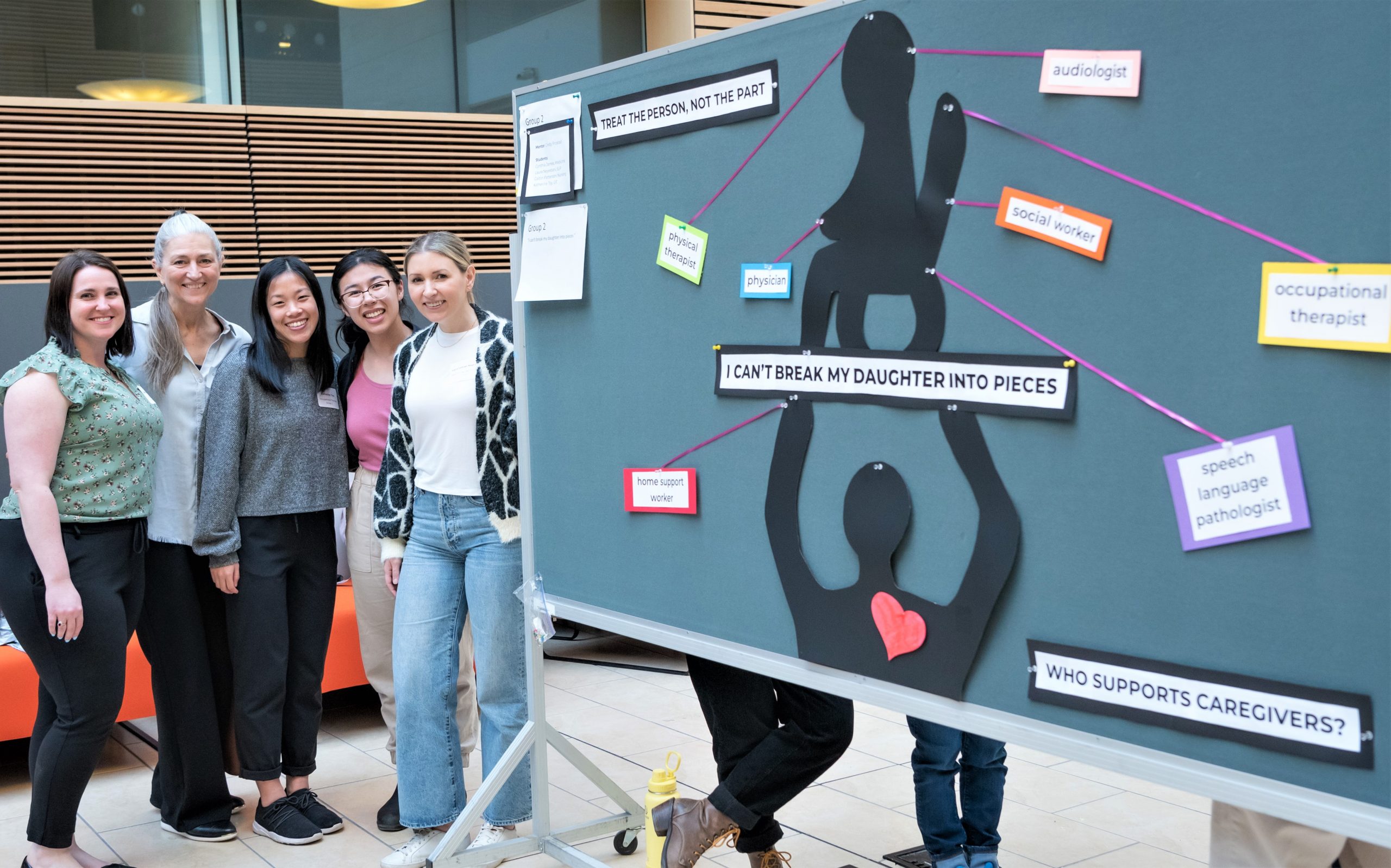
UBC health’s Interprofessional Health Mentors (HM) Program is a nine-month program enabling students to learn from patient educators (health mentors), who have extensive experience within the healthcare system. Katherine Toy, a first-year Master of Occupational Therapy (MOT) student, is among the select students who recently participated in this much-coveted program run by UBC Health’s Patient and Community Partnership for Education (PCPE). Katherine shares her invaluable experiences, reflections, and learnings from the program.
What was your overall experience of the program?
As each professional program is so busy with their own curriculum, it’s not often that we get opportunities to learn from individuals with actual experience or to collaborate with other healthcare students. The fact that the HM program gave me the opportunity to do both, it provided me an enriching and exciting learning experience. I learned first-hand how the communication and teamwork of interprofessional teams directly affect the caregivers and the care-recipients. The lessons shared about the “human” side of healthcare has not only changed permanently my approach to treating clients/patients, but also recognizing my role within the healthcare system.
How was your experience creating reflective journals?
Creating reflective journals, which is a writing activity required after each meeting, allowed me to synthesize the information that was discussed during my group’s sessions. I found that it not only challenged me to reflect on the key lessons I learned, but also pushed me to think about how I can incorporate the lessons learned into my practice as a future occupational therapist. One of the most meaningful journals for me was the letter written to my mentor, Cindy Frostad.
What did you like about the program?
I liked how the groups were small and intimate. The small group size allowed me to form deep and meaningful connections with my peers and mentor. Over the course of nine months, we created a safe and non-judgmental environment, enriching our learning and overall experience. One of my favorite parts of the program was the HM Symposium, which not only exhibited my group’s learnings and deliberation, but also provided an opportunity to learn from other groups’ key messages, enlightening me of how unique and different everyone’s experiences are within the healthcare system. Knowing that every mentor has their own story to share, and every student has their own interpretation, it prompted me to think about the role and essence of an occupational therapist in such settings.
What are your key learnings from the program?
My biggest takeaway is that everyone in the healthcare system has a unique experience in living with, or caregiving for someone who has a chronic condition or disability. This was evident in the diverse poster boards and themes of the Tweets displayed at the HM Symposium. Ultimately, this diversity reinforces the importance of client-centered care and collaborative, relational-based practice.
What advice would you give to future applicants?
Go into the program with an open mind! It is a privilege to be able to learn from professionals with lived and living experience. With each session, be mentally and emotionally present and allow yourself to listen and take in everything your mentor has to share. The lessons you learn cannot be taught in a school textbook.